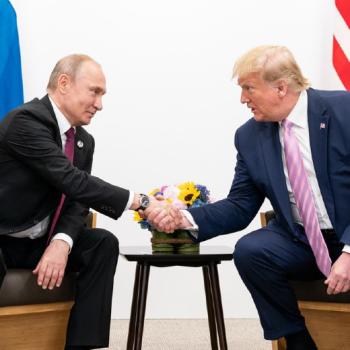The church should be so thoughtfully wrong. What we have are seminaries whose strategy is to not offer a Master's degree; judicatories without leadership in the development of ministry to youth, young adults, and families; and leaders who have announced that any global expression of our unity with churches in the more conservative southern hemisphere is probably just a non-starter.
It is not hard to imagine what the "profit margin" will be on such imaginative initiatives.
The fourth mistake that Kodak made was to underestimate the extent of the change that faced them.
While Kodak pivoted to digital sales, it bet that the company could sustain itself on the sale of film products in China. (Sound like a familiar gambit?) But, unfortunately, for Kodak, the Chinese market embraced digital products as fast or faster than other parts of the world.
The nation and the world are becoming more, not less Christian. But the church will be non-white, Catholic, Pentecostal, Pentecostal-Catholic, and Fundamentalist.
The church can ill-afford to underestimate the change. And, yet, the leaders of many denominations are opting for a smaller church, shaped not just by national boundaries, but by their own interpretation of the Gospel. Difference is a ________, isn't it?
But we have a bigger obligation to acknowledge it than simply issues of market share. The nature of our message is, in and of itself, one that is universal and unifying in its message. And if it becomes something fit for only a single brand of interpretation east of the Hudson and south from New York to Washington, then whatever it might be, it is not the Gospel.
The church is what it is today, not just because it acknowledged change, but because it actively embraced it, spreading from culture to culture and country to country.
The fifth and perhaps most basic mistake that Kodak made was it confused what it does with how it was done.
Of all the mistakes that Kodak made, perhaps the biggest one was that it failed to realize that film was just one way of being in the image business. That slowed its innovation. As a result, the company that drove the development of the camera business in the United States became a caretaker of the past. And, arguably, when Perez began leading it in a new direction in 2000, it was already too late to turn things around.
The church never asks itself often enough why it exists. The conversations among clergy are all too often about managing the bureaucracy, nonsense, and dysfunction that are a part of its life. The programming in churches is far too often focused on therapeutic and political topics.
Issues of "ecclesiology"—that dimension of theology that is meant to answer the question, "What is the church and why does it exist?"—have been relegated to the backwater of our conversations. As a result, we have confused what we do with how we've done it.
There is nothing more difficult than letting go of the past. And there is nothing more likely to ground us in letting go of it, than grounding in our God-given purpose. There are a lot of good things that a church can do, but if it is not focused on making it possible to encounter the living Christ, there is little about the way we do things that deserves to endure—or needs to, really.
There is, of course, one last lesson to learn from Kodak.
As hard as it will be to see it go, the need to capture and preserve images will still be met. It is a need that marked the human experience before George Eastman began his work. It is a need that others already meet. And it will be an effort that others will continue to make.
Similarly, people will continue to need God and God will continue to find God's people, with or without us.





